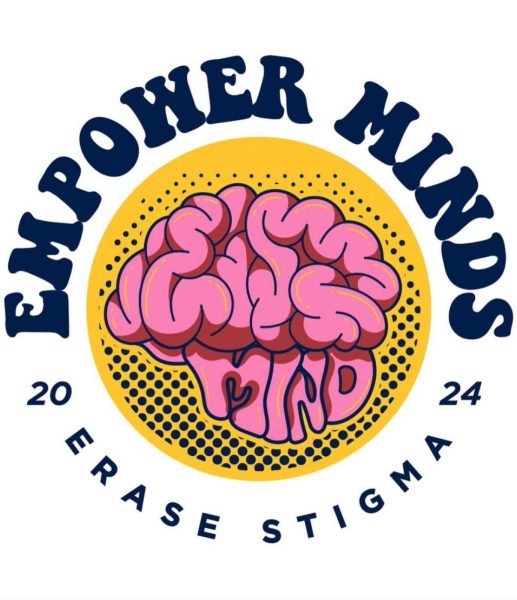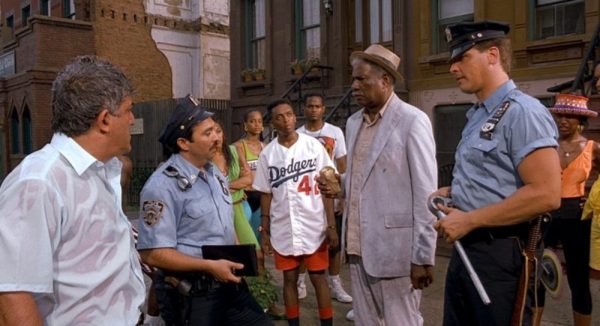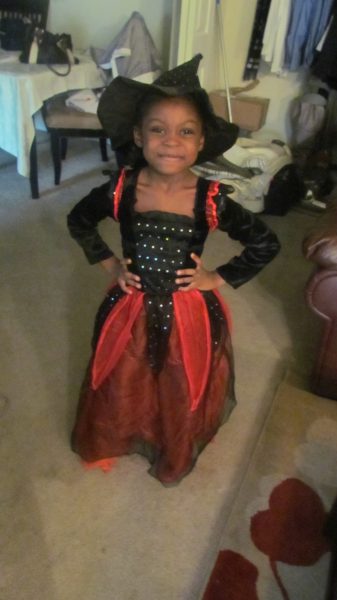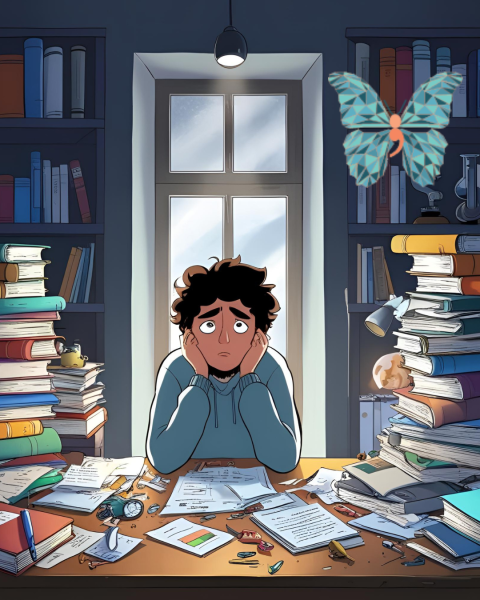WM alumni describes gritty details of fighting on COVID-19 front lines
Watkins Mill alumni works at White Oak Medical Center, fighting against COVID-19.
There’s a great sense of urgency in the air, and chaos throughout the halls. Doctors have tried everything, but the patient’s oxygen levels just won’t rise. A young nurse paces around the room anxiously, wondering why there was nothing more she could do. No, this isn’t an episode of the latest season of Grey’s Anatomy. This is real life. It’s happening every day.
Carlita Nelson* is a Watkins Mill graduate and registered nurse who, for the last year, has been working in the COVID-19 department at White Oak Medical Center.
“I was working in the [intermediate care unit] when the pandemic first hit us last February,” Nelson said. “It would later be turned into the coronavirus department, because it was the only section of the hospital with negative pressure rooms, which prevent the spread of airborne diseases.”
Nelson expressed how the pandemic exhausted her mental health and affected a lot of people negatively. “A lot of my coworkers quit. Many of my associates already have backup plans in case they leave as well,” she said.
“I go days without eating, [and] nights without sleeping,” She continued, “If I could describe it all in one word it would be ‘fatigue.’ Fatigue of seeing people die all around me. You just get really tired of it all.”
At the start of the pandemic, there was a shortage of many essential medical equipment such as N95 masks, and respirators that could filter out 95% of airborne particles.
“The masks are supposed to only be used one time, but because of the shortage, we would only have one [mask] for the entire day,” Nelson added. “We were actually running out at one point, so the hospital would collect all the masks and have them sanitized for reuse.”
Oftentimes nurses did not have the proper protection which led to many contracting the disease themselves. “It just felt like we were unprepared and had no help. It really exposed a lot of incompetence in the industry,” Nelson said.
Nelson recalled the start of the pandemic as “frightening.” “It really started hitting us early in March. I actually had the first COVID patient on our floor. Our manager called everyone into a room and said ‘This is something that’s scary, but it’s going to be here for a while.’ One thing I appreciated is how she tried to alleviate our fear,” Nelson added.
Nelson recounted a general unease in the air. “We didn’t know what this was or how it spread. I remember being so terrified.”
Nelson described the months that followed as “horrible.” “Rules were changing every day. First, they told us to vent patients ASAP, then it changed to [venting patients] as late as possible. At first we were told to give patients hydroxychloroquine, then studies came out proving this actually wasn’t helping.”
“Even the way we had to wear our masks was changing by the day,” said Nelson, “‘Wear it this way. Actually no, wear it that way.’ Still the most tragic part was seeing people die; it’s hard seeing people as they circle the drain.”
Nelson made it clear that there was no distinction in who was contracting the disease. “We had people in their 20s and 30s, and people in their 80s and 90s, all suffering from the exact same disease. It’s very tiring to take care of patients [who] look like they’re drowning because they can’t breathe. A lot of people reach their end stage with COVID quickly; it can overwhelm the body fast.”
One thing Nelson expressed is how frustrating and helpless the whole situation has made her feel. “Every day on my way to work I’m hearing more depressing news on the radio about how COVID was hurting the country and I know there’s nothing more I can do,” Nelson said.
Nelson spoke about her worst day on the job. “I hadn’t been eating or sleeping for days,” Nelson began. “I was taking care of two COVID patients at the time: an older woman who was already on a lot of oxygen, and a middle aged man. The woman wasn’t doing too well the day before, so I wanted to visit her first and wipe her face and make sure she was comfortable.”
As Nelson made her way through the hospital, she stopped by her other patient’s room first. His oxygen level was dangerously low. “Normal oxygen saturation levels are in the 90s-100s. His was in the 60s. He sounded horrible,” Nelson said.
The patient had accidentally disconnected one of his oxygen tubes overnight. “After connecting the tube again his oxygen level wasn’t going up. Nothing was working, so I had to call a rapid response team,” Nelson said.
Doctors and nurses all gathered outside the room, contemplating their next move. Nelson recalled feeling distressed, “I remember pacing around the room thinking to myself ‘Why isn’t anyone helping?'”
The hospital didn’t have any available high flow oxygen machines so the doctors decided the best thing to do was to intubate the patient. “I felt my heart sink. So many people were dying on ventilators, [and] to me this almost felt like a death sentence,” Nelson added.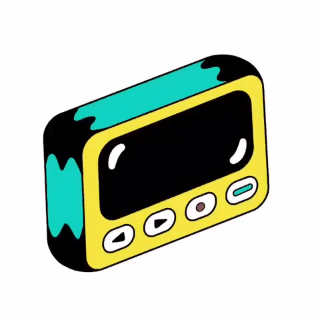
As the team got the patient ready for intubation, Nelson’s pager went off. The world slowed to a stop as she looked down at the pager and felt tears form in the corners of her eyes. Her other patient had just passed away.
Some stories don’t have a silver lining. There are some days where everything goes wrong, and all you can do is hope you took something from it. “When you’re surrounded by death it’s very easy to grow numb to it. It’s important to hold on to your humanity,” Nelson said.
Both patients ended up dying the same day. “I had to call the patients’ families and let them know their loved ones had passed,” Nelson added, “That part never gets easy.”
As the day continued Nelson’s department got an admission from the emergency department. “I had to take care of each patient from head to toe. I was supposed to get off at 6:45, I ended up staying past 8,” Nelson said.
As she walked out of the building, Nelson told me all she felt was an overwhelming sense of dread. “I couldn’t believe so many were going through this. We even had family members at times. Fathers and sons, husbands and wives, all in different rooms,” Nelson said.
Nelson had a message to those people who aren’t taking the pandemic seriously by going outside without a mask or taking and planning unsafe trips to visit friends and family.
“Someone with coronavirus is completely isolated in the hospital,” Nelson said. “They can’t breathe, they have no idea what’s going to happen next, and they’re afraid. If you have empathy for anyone at all, the least you can do is take this seriously.”
While we have taken great strides in the fight against COVID-19, it’s important to remember that this is far from over. “If you’re being irresponsible and going out, you’re actually killing people. It’s not a joke and [it’s] something that needs to be on your conscience, Nelson said, “There’s nothing that important [that’s] worth someone dying for. And there’s nothing more important than saving someone’s life.”
“Do the bare minimum and you’re saving lives,” Nelson added.
*Name has been changed to protect source’s identity
Your donation will support the student journalists of Watkins Mill High School. Your contribution will allow us to purchase equipment and cover our annual website hosting costs.
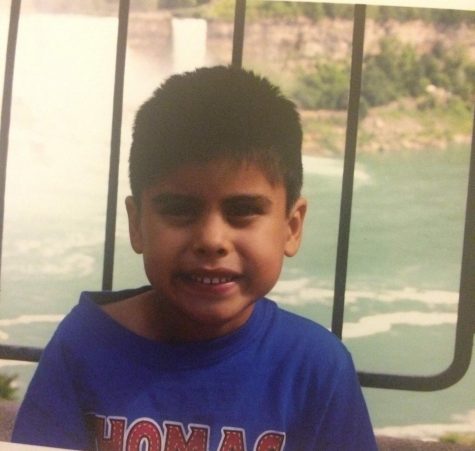
You’re sitting at home staring at your desktop computer. Or maybe you don’t have a desktop computer, maybe you’re browsing the internet on a laptop,...







